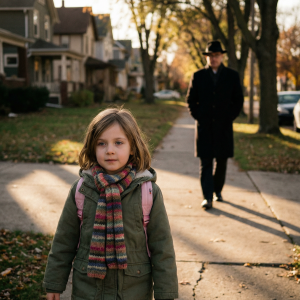My husband’s death came without warning. One day, we were an intact family—me, him, our two beautiful children. The next, he was simply gone, ripped away without a chance to say goodbye. The pain was crushing. It remains crushing. But amid the devastation, I had to summon strength for our kids’ sake.
My husband left behind substantial life insurance. Nothing could resurrect him, but at least it provided something concrete: security, stability, a pathway forward for our children. I managed it responsibly—establishing college funds, handling expenses, ensuring we wouldn’t face financial ruin. It was his parting gift of love, his way of protecting us. Then his family showed up with their hands out.
Initially, the approach was subtle. Several months after his death, my in-laws arrived requesting money. My mother-in-law pulled me aside, claiming there was something “urgent” we needed to discuss. She and my father-in-law insisted I should distribute part of the insurance payout to my late husband’s grandparents—his mother’s parents. I was stunned.
We’d never been particularly close. They’d barely recognized my existence, skipped our wedding claiming it was “too distant,” yet somehow found the resources to vacation across Europe annually. They’d never demonstrated interest in our children, never remembered birthdays, never made the effort to visit. And now, abruptly, they required assistance?
Their justification? “Our son and your husband would have expected this.” I genuinely wanted to respond with compassion. But this money wasn’t his to distribute anymore—it was designated for our children. For their education, their welfare, their prospects. My in-laws appeared indifferent. When I politely declined, explaining I needed to prioritize the kids’ future first, the emotional manipulation commenced.
“You’re being incredibly selfish,” my mother-in-law snapped during a late-night phone call. “They’re struggling! They’re elderly! You’re disrespecting your husband’s legacy!” The situation intensified. She branded me cold, avaricious, merciless. She emphasized how they were surviving on limited income now and how my husband would never have abandoned family.
The pressure became intolerable. Constant calls, messages, and even surprise appearances at my doorstep—her eyes puffy with tears, whether authentic or manufactured, I could no longer distinguish.
But the truly devastating part? My mother-in-law started weaponizing my children. My 7-year-old son approached me, bewildered, saying, “Grandma told me we should help great-grandma and grandpa because Daddy would be disappointed if we didn’t.” That’s when I knew this had crossed a line. Absolutely not. My grief was already suffocating—I refused to let them manipulate my children as well.
I maintained my position, but now I feel targeted. My mother-in-law has been poisoning the extended family against me, circulating stories that I’m hoarding money while they suffer. I’m constantly characterized as the antagonist—the widow who won’t “do what’s right.” Certain relatives have completely stopped communicating with me.
And I can’t stop wondering: If they’re this relentless now, what comes next? Will they pursue legal measures? Will they escalate their pressure and involve my kids even further? Will this ever end? So I’m asking—am I wrong for attempting to safeguard my children’s future?





